|

HOME |
ABOUT | INDEX |
NEWS |
FACEBOOK |
CONTACT
INDIAN
South Asian | Desi | Hindu | Sikh
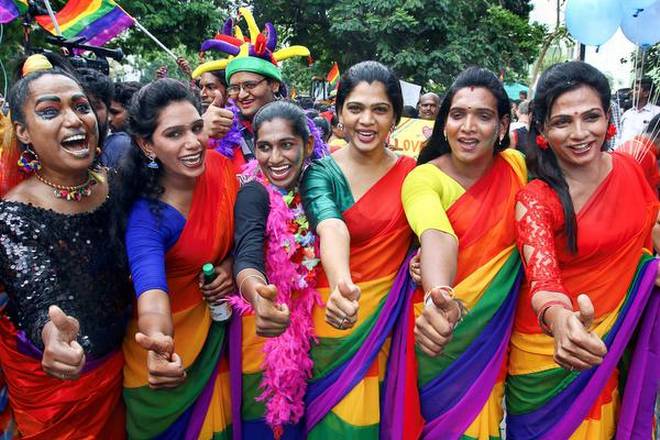

African American|Black
Hispanic|Latinx
Arab|Muslim|Middle East
Asian|Pacific
Jewish|Israeli
European|International

Homosexuality No Longer a Crime in India
In September 2018, India’s top court on struck down a
colonial-era law that made homosexual acts punishable by
up to 10 years in prison, a landmark victory for gay
rights in the world’s largest democracy. In a unanimous
decision, five Supreme Court justices ruled that the law
was a weapon used to harass members of India’s gay
community and resulted in discrimination. After the
ruling, opponents of the law danced and waved flags
outside the court. “We feel as equal citizens now,”
activist Shashi Bhushan said. “What happens in our
bedroom is left to us.”
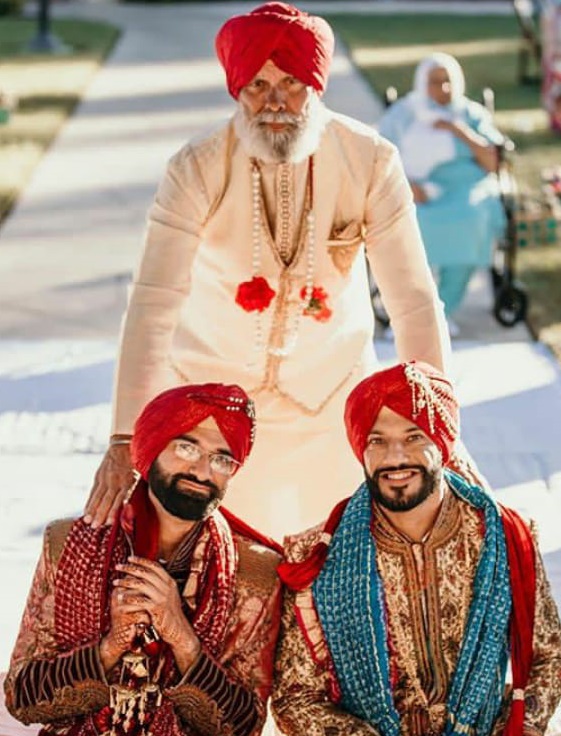
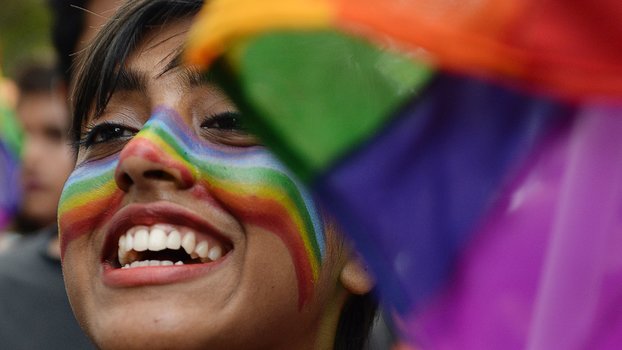
India Supreme Court Overthrows Sodomy Ban
Video: LGBTQ Rights in India
Huff Post: Homosexuality No Longer a Crime in India
Bollywood Star Praises India's Gay Rights Victory
The law (known as Section 377) held that intercourse
between members of the same sex was against the order of
nature. The five petitioners who challenged the law said
it was discriminatory and led to gays living in fear of
being harassed and prosecuted by police. Arvind Datar,
the attorney for the petitioners, argued in the court
that the penal provision was unconstitutional because it
provides for the prosecution and sentencing of
consenting adults.
[Source: Huffington Post, September 2018]
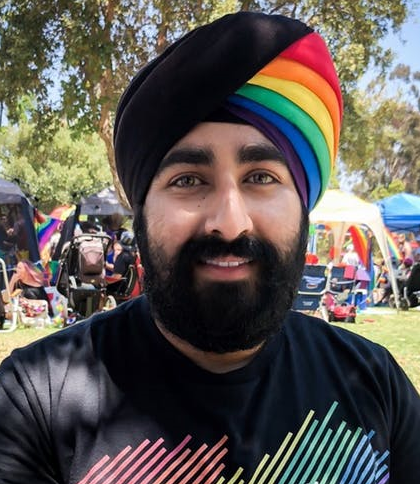
These Two Grooms Got Married In A Strikingly Beautiful
Hindu Wedding
India's First gay Prince and His Husband
Prove Love Can Break Barriers and Change Minds
KHUSHDC: South Asian
Queer and Trans Society
India’s First Openly Gay Prince: His Conversion Therapy
Experience
Influential Hindu Leader Advocates for LGBTQ Rights in
India
India’s Supreme Court to Hear Arguments on Legalizing
Same-Sex Marriage
Gay Indian-American to Become Top LGBTQ White House
Staffer
Kal Penn Reveals He's Engaged to Fiancé Josh
Two Trans Women Win
Election in India
India Supreme Court Overthrows Sodomy Ban
Huff Post: Homosexuality No Longer a Crime in India
Two Grooms Got Married In
Strikingly Beautiful Hindu Wedding
Hindu Views of LGBTQ Issues
Hindu views of homosexuality and, in general, LGBTQ
(lesbian, gay, bisexual, transgender, and queer) issues,
are diverse and different Hindu groups have distinct
views. Homosexuality is regarded as one of the possible
expressions of human desire. Although some Hindu dharmic
texts contain injunctions against homosexuality, a
number of Hindu mythic stories have portrayed homosexual
experience as natural and joyful. There are several
Hindu temples which have carvings that depict both men
and women engaging in homosexual sex.
Same-sex relations and gender variance have been
represented within Hinduism from Vedic times through to
the present day, in rituals, law books, religious or
so-called mythical narratives, commentaries, paintings,
and sculpture. The extent to which these representations
embrace or reject homosexuality has been disputed within
the religion as well as outside of it. In 2009, The
United Kingdom Hindu Council issued a statement that
'Hinduism does not condemn homosexuality', subsequent to
the decision of the Delhi High Court to legalize
homosexuality in India.
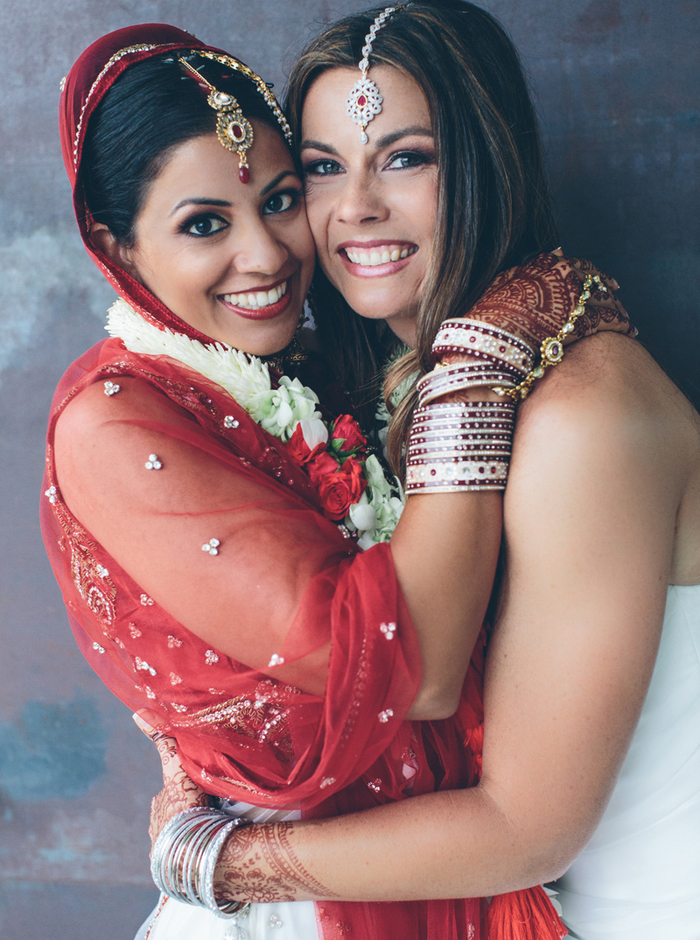
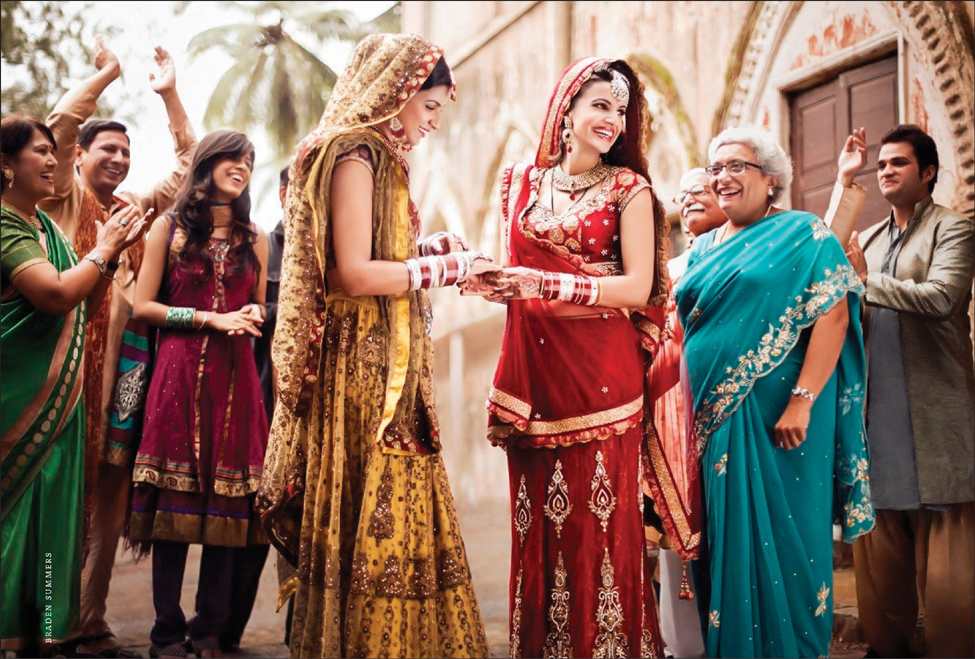
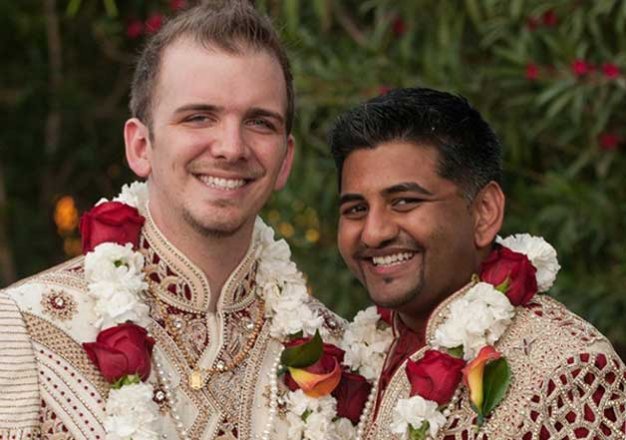
Delhi's First LGBTQ Flash Mob
Sweety and Kuhu
LGBTQ Pride March in Mumbai
Two Grooms Got Married In
Strikingly Beautiful Hindu Wedding
Hindu Wedding: Neeral and Anu
Independence Day: I Free Myself
Indian Transgender People and the Caste
System
Sweety and Kuhu: Girls Like You
India/Pakistan Lesbian Wedding
Sufi and Anjali
One Standing Night
Best South Asian LGBTQ Movies on
Streaming
Lilly Singh: Let's Talk About LGBTQ Issues
Video Story: I Can Be Gay and Muslim
Huge Jain Gay Wedding
Shruti and Jaya at Holi
Evolving Perspectives: Hindu
Culture and the LGBTQ Community
In recent years, there has been a noticeable shift in
attitudes among Hindus towards the LGBTQ community. As
society continues to progress, cultural and religious
perspectives are also evolving, and the Hindu community
is no exception. While traditional values are deeply
ingrained, there is a growing acceptance and
understanding of diverse sexual orientations and gender
identities.
Hinduism, one of the world's oldest religions, has a
rich tapestry of traditions, scriptures, and cultural
norms. Historically, societal norms in Hindu-majority
regions have been conservative, influenced by various
texts and interpretations. However, Hinduism itself is
diverse, with a multitude of sects and interpretations,
leading to varying attitudes within the religion.
In recent times, there has been a noticeable shift in
attitudes towards the LGBTQ community within Hindu
communities worldwide. A younger generation of Hindus is
challenging traditional views, advocating for
inclusivity, and fostering a more compassionate
understanding of LGBTQ individuals.
This transformation can be attributed to several
factors. Globalization, increased access to information,
and exposure to different cultures and ideas have played
a role in broadening perspectives. Additionally, the
LGBTQ rights movement has gained momentum globally,
leading to increased awareness and acceptance.


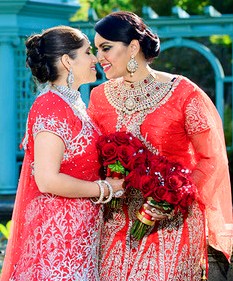
These Two Grooms Got Married In A Strikingly Beautiful
Hindu Wedding
India's First gay Prince and His Husband
Prove Love Can Break Barriers and Change Minds
KHUSHDC: South Asian
Queer and Trans Society
Queer Teen Dies By Suicide After
Relentless Online Attacks
Indian Actor Jameela Jamil Comes Out
Lilly Singh: Bisexual Indian Comedian and New Late Night Host
India Declares: Freedom of Sexual Orientation is
Fundamental Right
“Your Love” Film Puts Queer South Asian
Elders Front and Center in a Beautiful Way
More Than Half of India’s Population
Supports Same-Sex Marriage
Best South Asian LGBTQ Movies on
Streaming
While some traditional interpretations of Hindu
scriptures may be perceived as conservative, there are
also elements that emphasize inclusivity and acceptance.
Concepts like "Ardhanarishvara" — a representation of
Lord Shiva as half-male and half-female — and the
recognition of the third gender, "Hijra," in certain
Hindu texts, highlight a historical acceptance of gender
diversity.
Prominent Hindu leaders, scholars, and activists have
emerged as advocates for LGBTQ rights. They argue that
Hinduism's core principles of love, compassion, and
acceptance align with the values of inclusivity and
understanding. Such voices emphasize the need to move
beyond rigid interpretations and embrace the diversity
inherent in both the human experience and Hinduism
itself.
Despite the positive changes, challenges remain. Some
conservative elements within Hindu communities still
resist the acceptance of LGBTQ individuals. It is
crucial to engage in open dialogue, fostering
understanding and dispelling misconceptions. Education
and awareness campaigns can play a pivotal role in
breaking down stereotypes and promoting empathy.
The attitudes of Hindus towards the LGBTQ community are
evolving, reflecting broader societal shifts towards
inclusivity and acceptance. While there are challenges
to overcome, the growing number of progressive voices
within the Hindu community signals a positive
trajectory. As individuals and communities continue to
engage in dialogue and reflection, there is hope for a
future where diversity is celebrated within the rich
tapestry of Hindu culture.
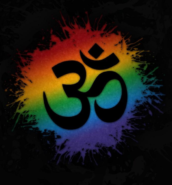
Jasvir Singh: I'm a Devout Sikh and
Married to a Man
One Standing Night
Sikhism and Sexual Orientation
CNN: India's Top Court Decriminalizes Homosexuality
Dutee Chand: India's First Openly Gay Athlete
Comedian: Being Gay and Indian in America
Two Grooms Got Married In
Strikingly Beautiful Hindu Wedding
Newsweek: Perils of Being LGBTQ in India
LGBTQ
Nation: News From India
India's
LGBTQ Activists Raise Their Voices
When, as a teenager
Ankita Mehra realized she was attracted to other women,
she says she felt trapped. Given India’s deeply
conservative society, Mehra feared she would be disowned
if her family found out.
The first counselor she visited told her that for 15,000
Indian rupees (about $200) he would “fix” her. But after
a second counselor advised her to come out, Mehra says
she wrote a six-page letter to her father, which
included pleas that he not throw her out of the house.
She says her father cried as he read the letter, and
afterward hugged her with acceptance.
Now 23, Mehra says she wants corporate India and
mainstream society to more fully accept the country’s
LGBTQ community. In November 2019, she helped organize
New Delhi’s first career fair meant for the lesbian,
gay, bisexual, transgender, queer, or LGBTQ community.
“We are talented enough to get a job but we are looking
for a safe and inclusive place,” she says. Mehra is part
of a growing number of activists advocating for India’s
lesbian and gay community, which has grown bolder in the
past year. In September 2018, India’s Supreme Court
repealed a colonial-era law that made same-sex
intercourse a crime, punishable with up to 10 years in
jail. India’s move energized movements in other former
British colonies, such as Singapore and Myanmar, to
throw out similar laws.
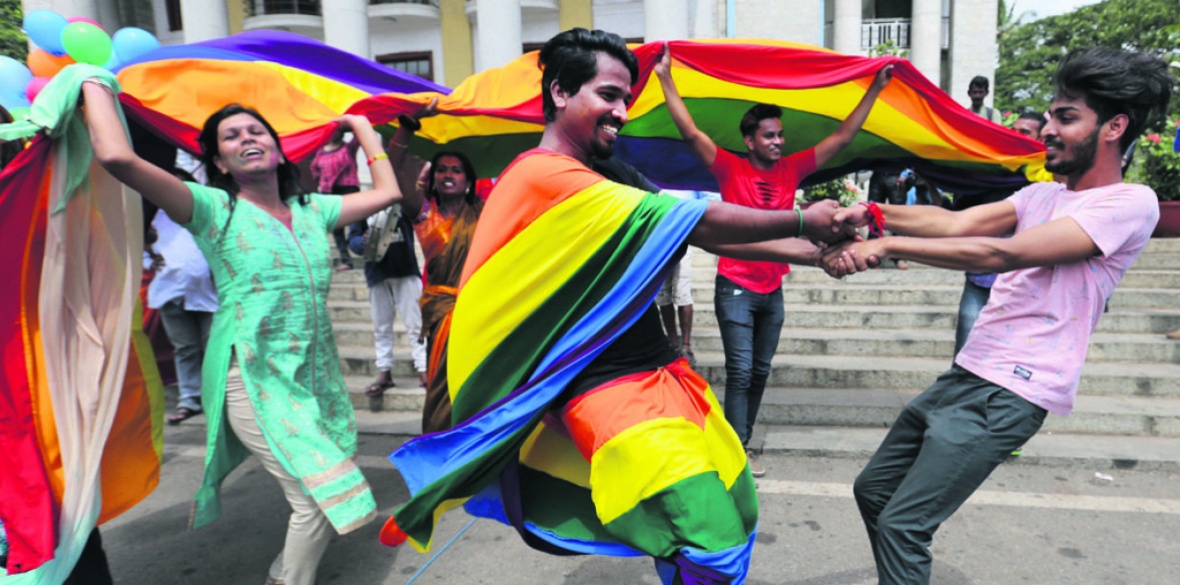
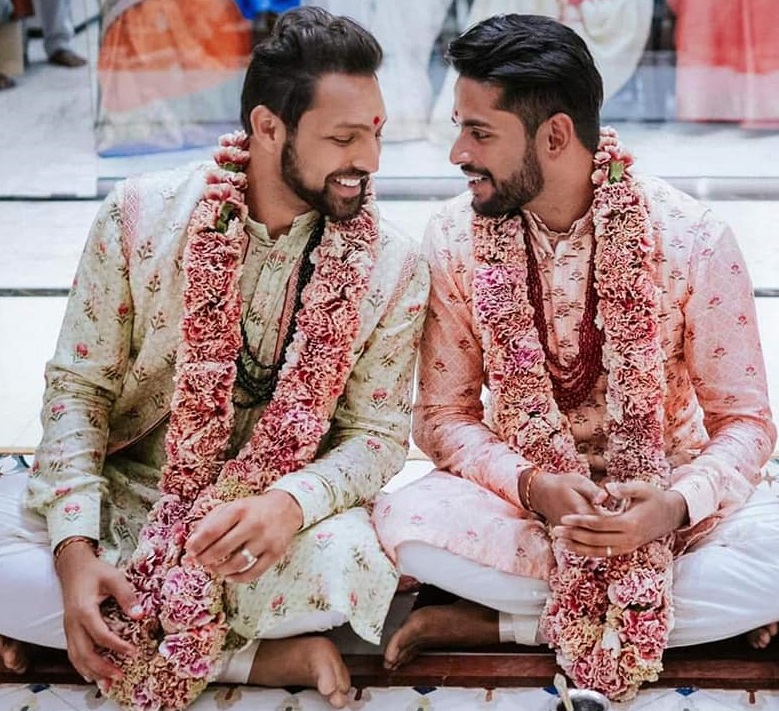
These Two Grooms Got Married In A Strikingly Beautiful
Hindu Wedding
India's First gay Prince and His Husband
Prove Love Can Break Barriers and Change Minds
Actor Nik Dodani: Being
Gay and Indian
KHUSHDC: South Asian
Queer and Trans Society
Best South Asian LGBTQ Movies on
Streaming
Having Pride in Both My Sikh and Gay Identity
Humnava Mere: Manyata and Natasha
Quora Blog: What It's Like to Be Gay and Indian
Vice: Secret Lives of India's LGBTQ Youth
Guardian: Indian Americans Balance Family with LGBTQ
Identity
Newsweek: Perils of Being LGBTQ in India
Love Story: Vaibhav and Parag
In India, young adults
such as Mehra are demanding their civil rights. They
want employment where they won’t be judged for how they
talk or dress, they want medical and other benefits for
their partners, and eventually the right to be able to
marry and adopt children. Pleas for some of these
demands have been filed in local courts.
Veteran activists say that while the Supreme Court
ruling spurred many young people to embrace their
sexuality, their acceptance within the broader society
remains minimal. They continue to face violence and
harassment from their families, in schools, on the
streets and at the workplace. Many are subjected to
“conversion” therapy, forced marriages and “corrective
rape.”
“In the first six months after the Supreme Court ruling,
we handled about 64 crisis situations,” says Vivek Anand,
58-year-old chief executive officer of The Humsafar
Trust, a non-profit that has been advocating for gay
rights for 25 years. Anand cited an incident when a gay
man from Nagpur, a small town in central India, was
accosted by a group of men one evening on the street,
and asked to perform sexual acts for them. When he
refused, they beat him up brutally to the point where he
had to be hospitalized. “The crisis keeps going on,”
Anand says. And the situation is more difficult in
smaller towns, where people cling to stereotypes and
traditional ways. While recognizing that there’s a long
way to go in changing mindsets, younger advocates point
to what’s working well. They say the community has
become more visible since the Supreme Court judgment.
More role models are coming out.
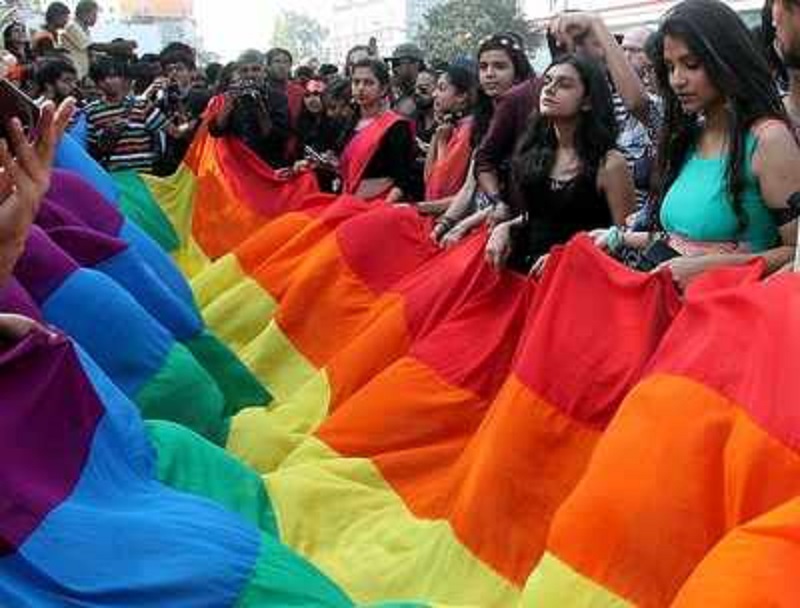
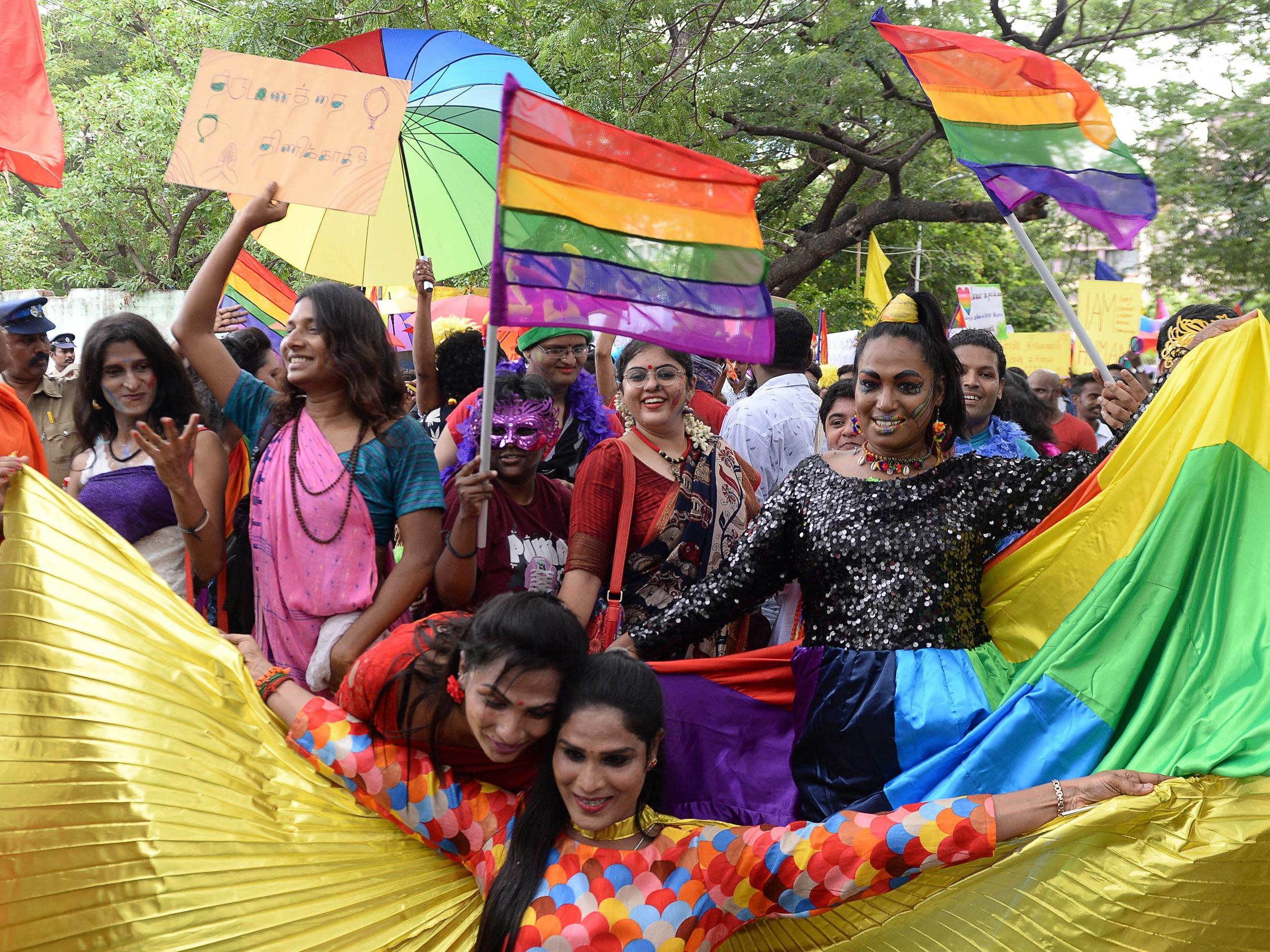
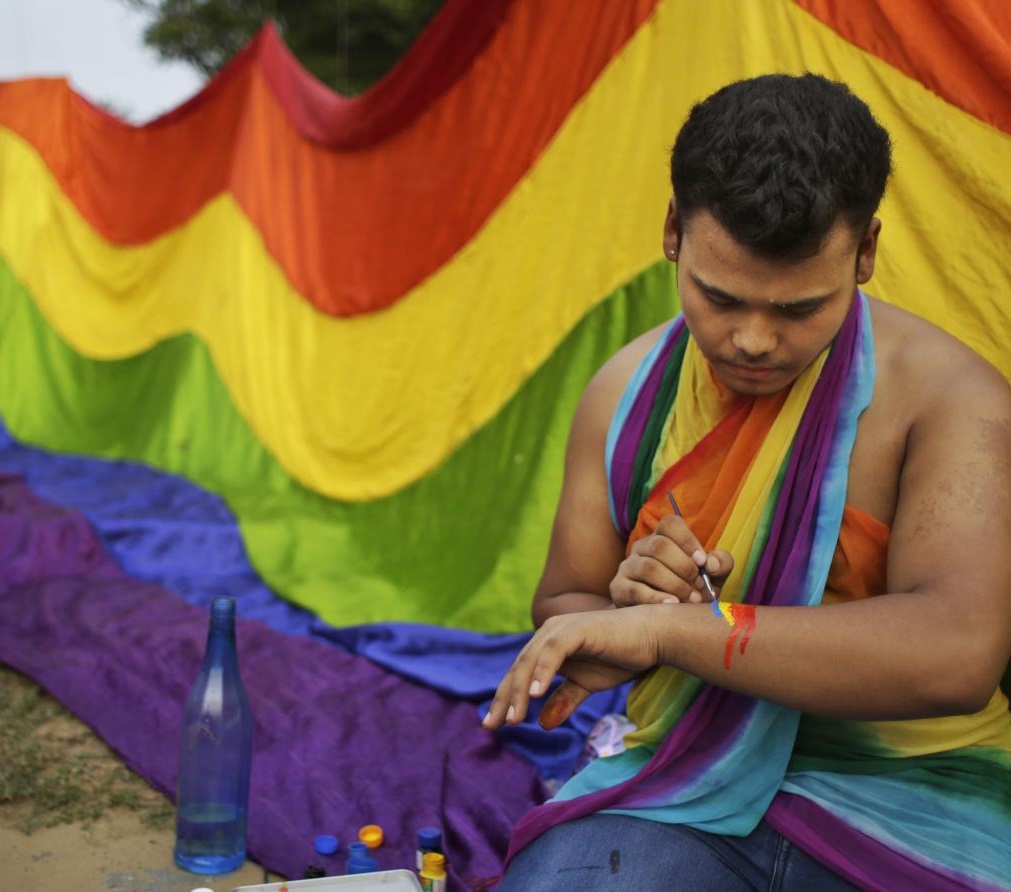
LGBTQ
Nation: News From India
Neil Singh and Eli Pew: Gay Hindu American Wedding
Video Talk: Sikh Man Comes Out to Himself and Family
Umang and Samara: Tujhi Kitna Lage
Hijra: India's Transgender Community
Sonal and Aditi
Sikh Coming Out Story
KHUSHDC: South Asian
Queer and Trans Society
Indian LGBTQ Channel: Indian Lesbian Film
Two Grooms Got Married In
Strikingly Beautiful Hindu Wedding
Anjali and Sufi: A Love Story
Sikhism and Homosexuality
Dutee Chand, a 23-year-old athlete who is her country’s
fastest sprinter, earlier this year became the country’s
first athlete to openly come out as lesbian. “I was
tired of living in fear,” Chand told Vogue India
magazine, which put her on its cover. Chand’s family and
village have disowned her.
India’s film industry, Bollywood, which has historically
shown queer people for comic relief, released the first
mainstream movie in 2019 in which the lead actress was
lesbian. Another mainstream movie is in production about
a gay romance. “The social markers are definitely
pointing in the right direction,” said Ramkrishna Sinha,
co-founder of Pride Circle, a “diversity” consulting
firm.
Sinha recently quit his job as an engineer at Intel,
where he worked for 10 years, to devote himself to
bridging the gap between LGBTQ talent and corporate
India. In July 2019, Pride Circle organized a career
fair in the south Indian city of Bengaluru. Around 300
candidates showed up, including from cities like
Hyderabad and Chennai, Sinha says. Thirty-five
companies, including Goldman Sachs and Indian
conglomerate Godrej Group, came for the event. So far,
more than 40 job offers have been extended, Sinha says.
“Now LGBTQ people expect an equal opportunity
workplace.”
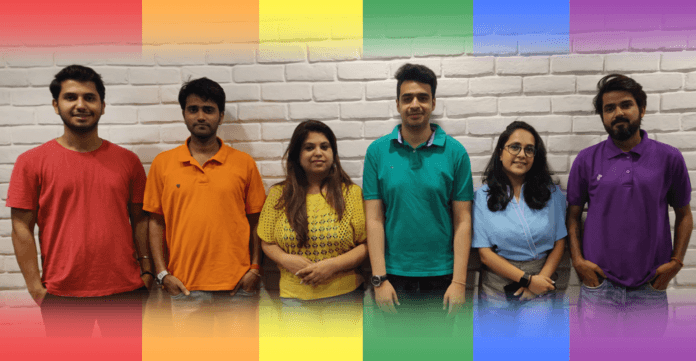
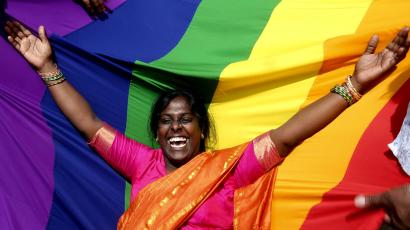
A similar career fair was also held earlier in India’s
financial capital, Mumbai. On a recent Sunday, more than
250 people gathered at The Lalit, a five-star hotel in
the heart of Delhi, for the city’s first career fair
dedicated to them. Candidates also came from small towns
like Lucknow and Bhopal, says Ankita Mehra, the
organizer. For some of them, Mehra and colleagues at her
organization Q-rious helped provide free accommodation,
she says.
Like other such fairs,
job candidates didn’t have to pay a fee. There wore
badges which allowed attendees to state the best pronoun
to address them — “He” or “She”. Journalists were asked
not to take photos at the event, to maintain the
anonymity of attendees. Executives of companies which
had set up stalls at the fair were given a
“sensitization” training on how to be around LGBTQ
people. The conference included panel discussions on
topics like ‘Inclusion in the mainstream employment’ and
‘Corporate engagement with LGBTQ Youth’. But these
panels invariably turned into conversations about the
struggles for the community and motivational messages.
Mehra shared the story of her coming out in a video that
left attendees in tears. “They gave me strength to come
out to my family,” says Shabnam, a 23-year-old business
school student.
[Source: Shefali Anand, US News & World Report, Dec
2019]
Video Lesson: Brief
History of All Things LGBTQ in India
Matt and Harshal: Wedding Ceremony
These Two Grooms Got Married In A Strikingly Beautiful
Hindu Wedding
“Your Love” Film Puts Queer South Asian
Elders Front and Center in a Beautiful Way
One Standing Night
LGBTQ Hindu Love Gods
India's LGBTQ Activists Raise Their Voices
Aster and Vivian: Tere Sanf Yaaran
Video Discussion: what it's Like to be Gay in India
A Little Late With Lilly Singh
Sweety and Kuhu: Until I Make You Mine
New Delhi LGBTQ Pride
Humnava Mere: Manyata and Natasha
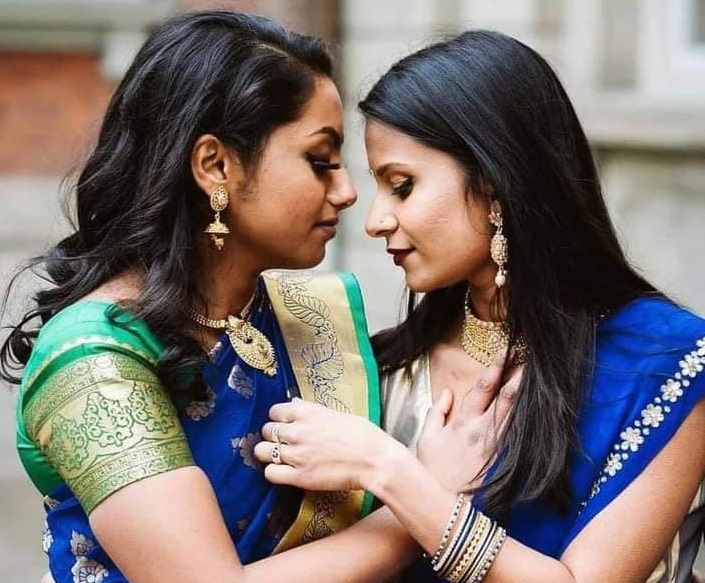
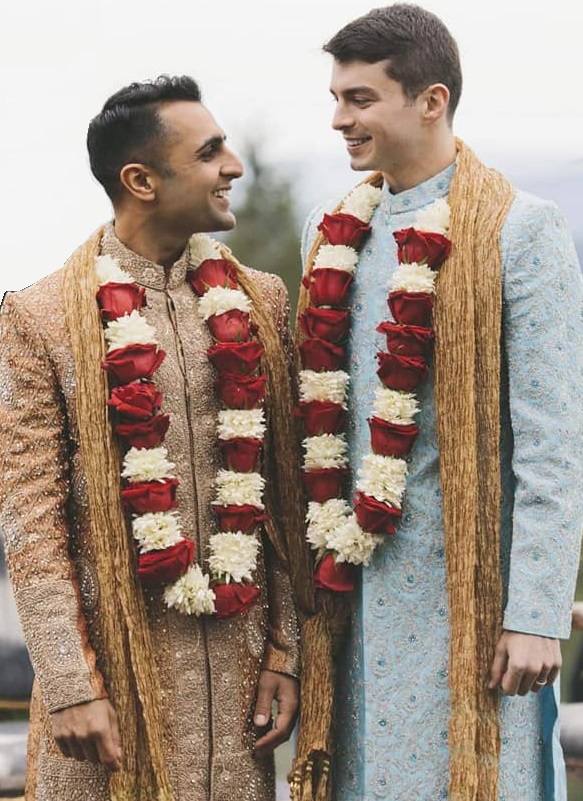
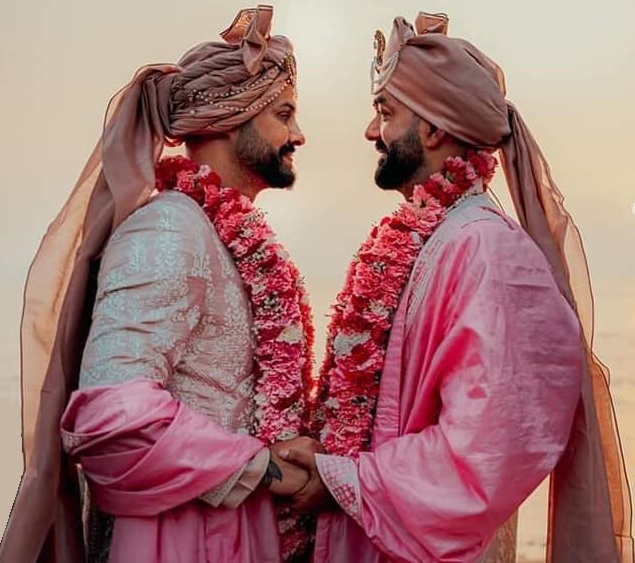
India Supports
LGBTQ Rights
India’s
Supreme Court has given the country’s gay, lesbian,
bisexual, trans and queer community the freedom to
safely express their sexual orientation. In a historic
decision on August 24, 2017, the nine-judge panel
declared that an individual’s sexual orientation is
protected under the country’s Right to Privacy law.
“Sexual orientation is an essential attribute of
privacy,” the decision reads. “Discrimination against an
individual on the basis of sexual orientation is deeply
offensive to the dignity and self-worth of the
individual. Equality demands that the sexual orientation
of each individual in society must be protected on an
even platform.”
Although the Supreme Court did not directly overturn any
laws criminalizing same-sex relationships, the language
of the court decision offers hope to the LGBTQ
community. The judges expressly state sexual orientation
falls under an individual’s right to privacy, a
constitutional right, and that no individual should be
discriminated against based on their orientation.
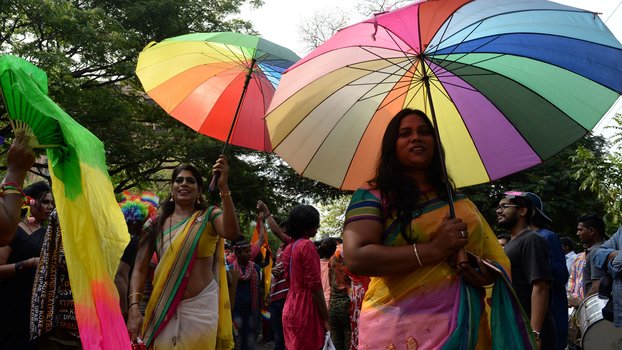
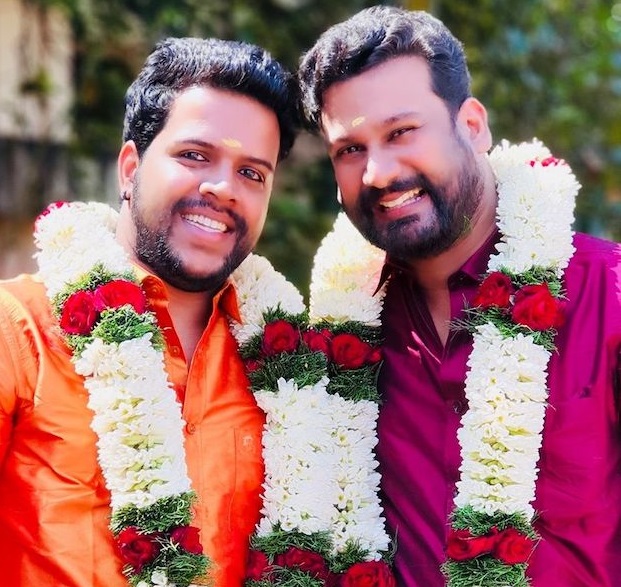

Indian Transgender People and the Caste
System
Hijra: India's Transgender Community
Huge Jain Gay Wedding
KHUSHDC: South Asian
Queer and Trans Society
Lesbian Wedding Anniversary: Hindu/Muslim India/Pakistan
Video Lesson: Brief History of All Things LGBTQ in India
Sufi and Angali
India/Pakistan Lesbian Wedding
Bollywood Series (Season1):Two Girls in Love at 19
Quora Blog: What It's Like to Be Gay and Indian
Poorvi and Somya
Best South Asian LGBTQ Movies on
Streaming
Cute Indian Pakistan Couple: Anjali and Sundas
Going forward, this can establish a precedent as
organizations challenge discriminatory laws in court,
and offer protection against discrimination in places
such as the workforce.
This could even deliver a death blow to an oppressive
and controversial law in the Indian Penal Code. Section
377 is a law that limits a citizen’s right to express
their gender identity or sexual orientation in
consensual relationships. In 2013, another panel of the
Supreme Court upheld Section 377.
India’s traditional culture can make it difficult for
people who are LGBTQ to be open about their orientation,
but some are still challenging the country’s norms.
Prince Manvendra Singh Gohil came out in 2006, making
him the country’s first openly gay prince. Since then,
he has been fighting for the Indian LGBTQ community.
Prince Manvendra started a grassroots campaign in 2014
called “Free Gay India” to campaign for LGBTQ rights. He
has put a spotlight on the oppression as a guest on “The
Oprah Winfrey Show” and was recently on an episode of
“Keeping Up With The Kardashians.”
“I knew that my coming out would definitely make a
difference,” the prince told the Kardashian family.
“When people found out about me, they set up a bonfire
and burned my effigies in it.”

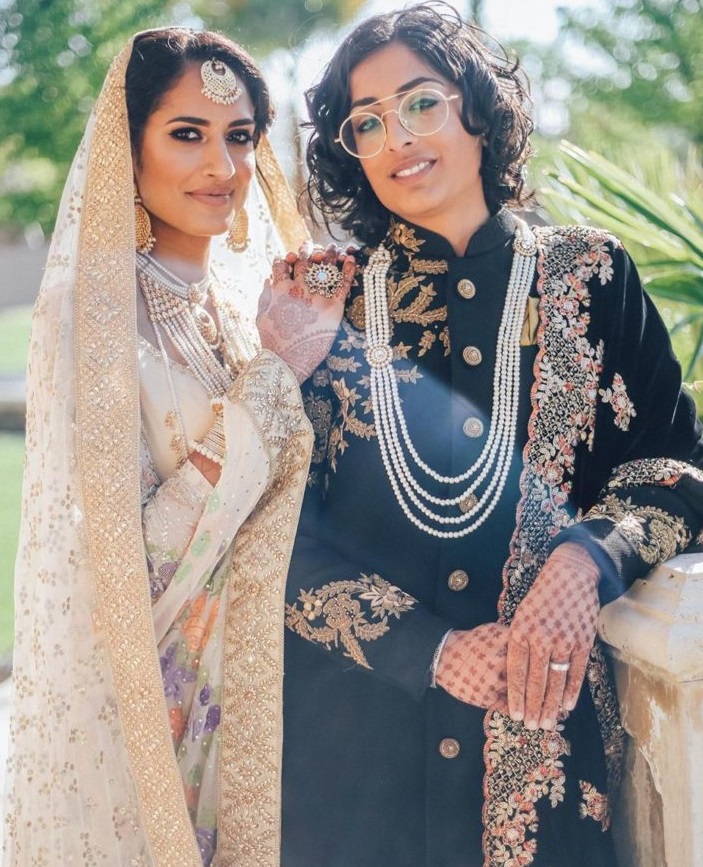
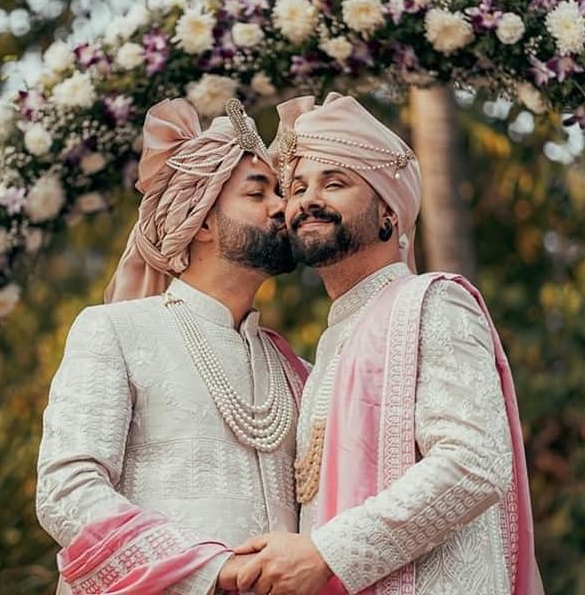
These Two Grooms Got Married In
A Strikingly Beautiful Hindu
Wedding
India's First gay Prince and His Husband
Prove Love Can Break Barriers and Change Minds
Vice: Secret Lives of India's LGBTQ Youth
Nik Dodani: Gay Indian Stand-Up Comic
LGBTQ Hindu Love Gods
Guardian: Indian Americans Balance Family with LGBTQ
Identity
Delhi's First LGBTQ Flash Mob
“Your Love” Film Puts Queer South Asian
Elders Front and Center in a Beautiful Way
Video: LGBTQ Rights in India
Hinduism and LGBTQ Topics
Sikh Man Discusses Homosexuality with His Mum
Indian Love Story: Datta and Sri
Video Story: I Can Be Gay and Muslim
Umang and Samara
LGBTQ Pride March in Mumbai
Best South Asian LGBTQ Movies on
Streaming
South Asian
LGBTQ Celebrities
Lilly
Singh - Actor, Talk Show Host (A Little Late)
Kalki
Subramaniam - Artist, Actor, Writer, Speaker,
Entrepreneur
Jameela
Jamil - Actor (The Good Place)
Apurva
Asrani - Film Maker
Dutee
Chand - Olympic Sprinter
Sushant
Divgikar - Actor, Model, Mr. Gay India
Ashok Row
Kavi - Activist
Ritu Vasu
Primlani - Comedian, Environmentalist
Kal Penn -
TV Actor (House), Film Actor (Harold & Kumar)
Parvez
Sharma - Film Maker, Author
Grace Banu
- Engineer, Activist
Freddie
Mercury - Singer, Songwriter
Santosh
Mehrotra - Economist
Ismail
Merchant - Film Producer, Director (Merchant Ivory
Productions)
Rohit Bal
- Fashion Designer
Riyad
Vinci Wasia - Film Maker
Rose
Venkatesan - Talk Show Host
Tan France
- Fashion Designer (Queer Eye)
Harish
Iyer - Activist
Madhu Bai
Kinnar - Politician
Tharika
Banu - Educator
Manabi
Bandyopashyay - Professor
Pinki
Pramanik - Track & Field Athlete
Atri Kar -
Government Worker
Amrita
Sher-Gil - Painter
Chanel Chowdhury - Bartender
(Pearl Bar in Houston)
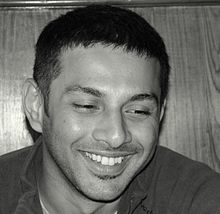
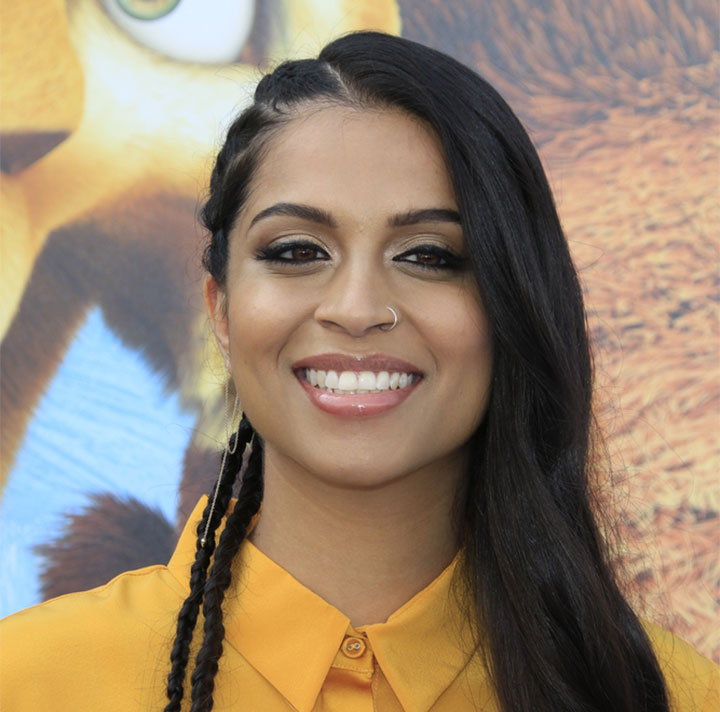
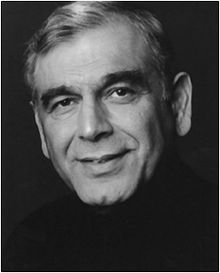
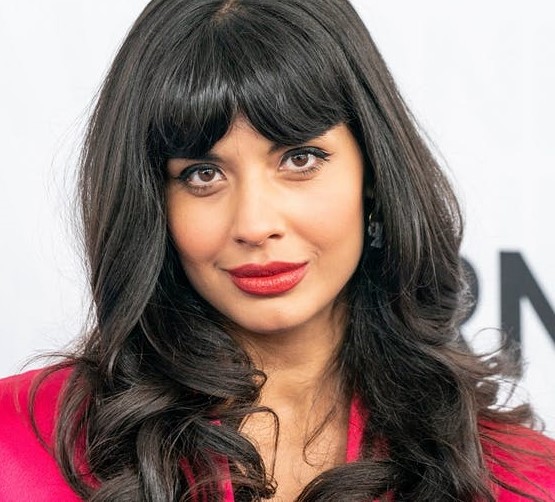
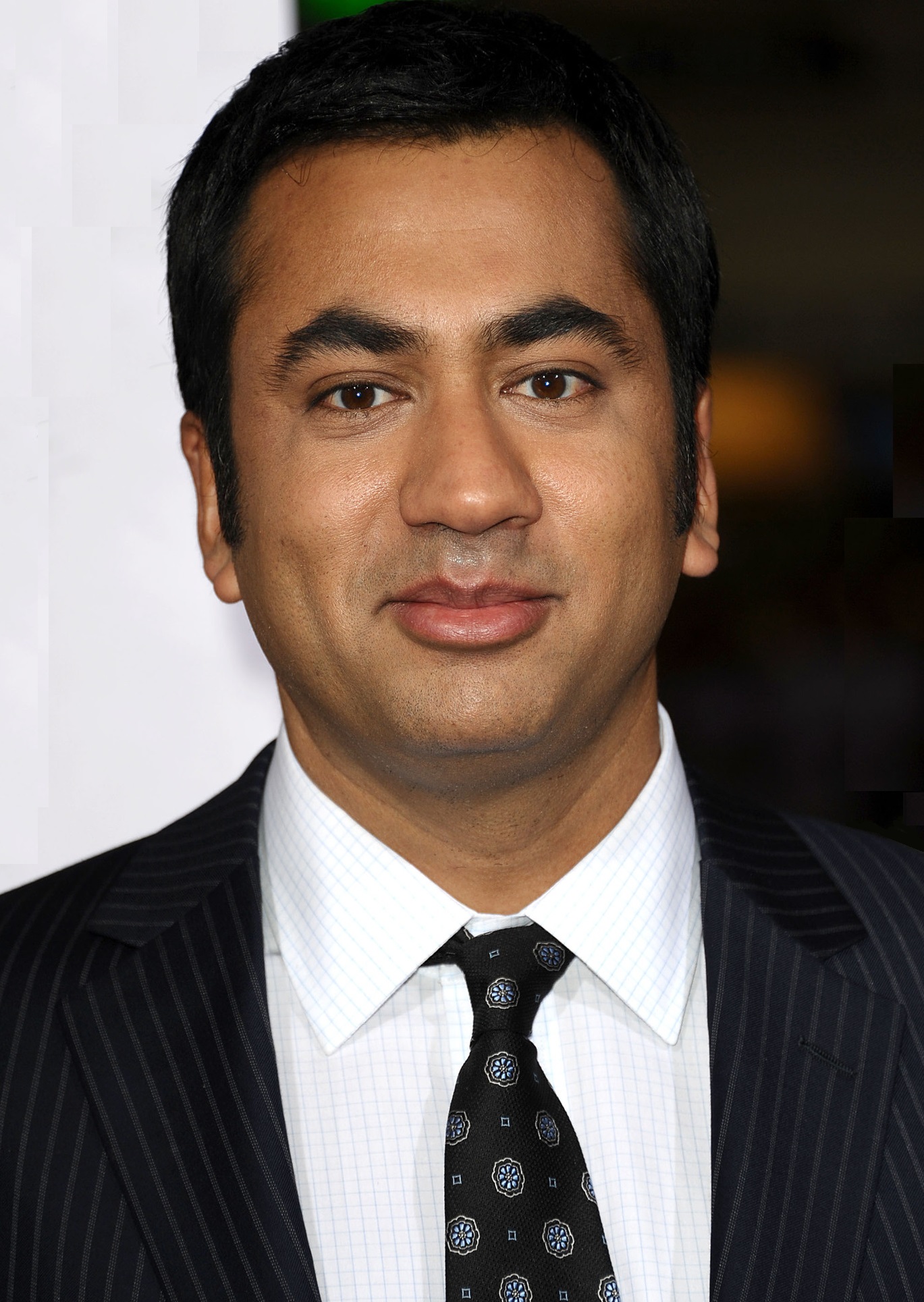
Sikhism and Homosexuality
Lilly Singh: Let's Talk About LGBTQ Issues
Huge Jain Gay Wedding
Humnava Mere: Manyata and Natasha
One Standing Night
LGBTQ Pride March in Mumbai
Two Grooms Got Married In
Strikingly Beautiful Hindu Wedding
Ellen and Vera: Hindi Love
Song
Delhi's First LGBTQ Flash Mob
Independence Day: I Free Myself
KHUSHDC: South Asian
Queer and Trans Society
Two Grooms Get Married In
Beautiful Hindu Wedding
The couple has inspired others
in the LGBTQ community with
their love-filled
celebration....
When two grooms tied the knot in
a traditional Hindu ceremony,
they didn’t anticipate that
their wedding photos would go
viral.
The couple, Aditya Madiraju and
Amit Shah, first got married in
a small ceremony at New York
City Hall in 2018, but later
decided they wanted to throw a
proper Indian celebration that
could include more of their
family and friends. They chose
this summer because it coincided
with a visit to the US that
Madiraju’s parents, who live in
India, had already planned.
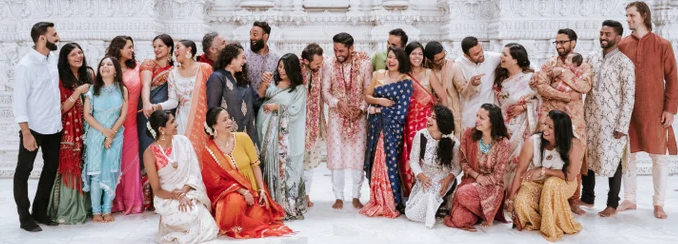
On July 18, the couple hosted a
mehndi party in their backyard,
followed by a traditional
ceremony at a Hindu temple in
New Jersey the next day. On July
20, they capped off the weekend
with a sangeet-style reception
at Pondicheri cafe in New York
City.
“In the midst of planning, we
didn’t realize that having a
same-sex wedding at a temple
would be groundbreaking,”
Madiraju said. “We were
fortunate enough to have the
opportunity to do it. And now
looking back, especially after
the attention our wedding has
received, it’s evident that what
we were able to do will change
the scope for LGBTQ couples in
the future.”
While homosexuality isn’t
explicitly condemned in the
Hindu religion, some Hindu
temples or communities may be
“unwelcoming of LGBTQ people,
often reflecting attitudes
imported from conquering
nations, such as the British
Empire in India,” according to
the Human Rights Campaign.
The couple’s wedding
photographer, Charmi Patel Peña,
said the Hindu community “still
has a lot of growing to do when
it comes to gay marriage.”
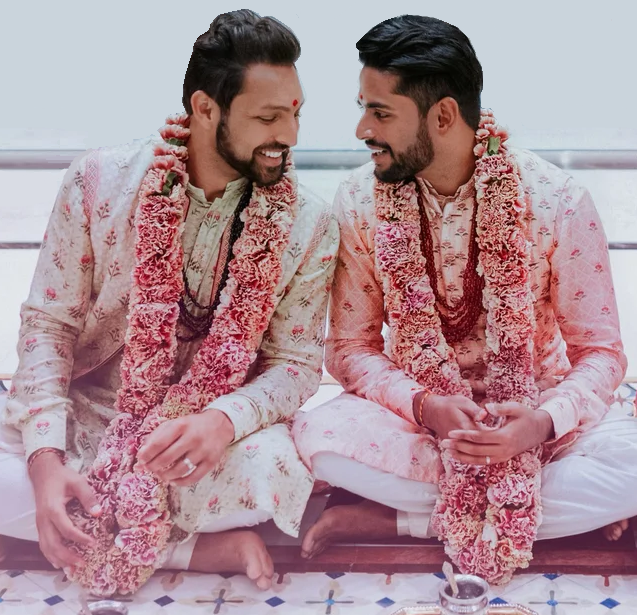
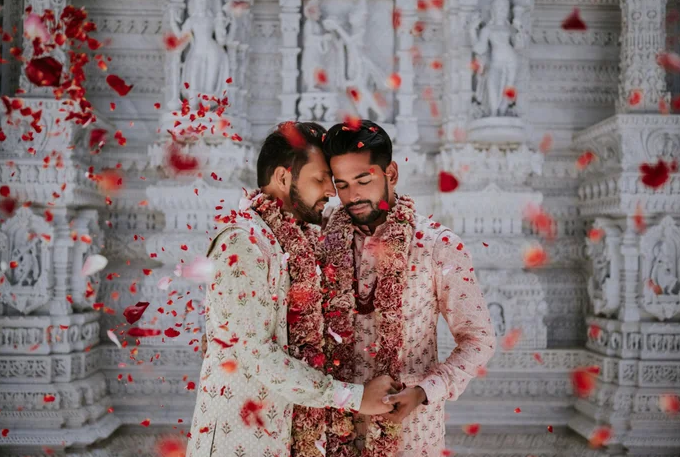
“So it’s been really, really
amazing for us to see how LGBTQ
couples have been embraced by
the temple and the community
which allowed them to marry
there,” she added.
Madiraju called the response to
their wedding “overwhelming.”
People from all around the world
have reached out to share their
own stories and offer their
congratulations to the couple.
“We have been getting messages
on social media from people
around the globe who have come
out to their families, people
who have regained a sense of
hope, and even those who have
changed their mind about LGBTQ
couples and will now support
them,” he said. “The response
has given a whole new meaning to
our marriage, and we are excited
about the social changes this
will help make.”
[Source: Kelsey Borresen,
Huffington Post, May 2024]
These Two Grooms Got Married In
A Strikingly Beautiful Hindu
Wedding
India's First gay Prince and His Husband
Prove Love Can Break Barriers and Change Minds
KHUSHDC: South Asian
Queer and Trans Society
India’s First Openly Gay Prince: His Conversion Therapy
Experience
Influential Hindu Leader Advocates for LGBTQ Rights in
India
India’s Supreme Court to Hear Arguments on Legalizing
Same-Sex Marriage
Gay Indian-American to Become Top LGBTQ White House
Staffer
Kal Penn Reveals He's Engaged to Fiancé Josh
Two Trans Women Win
Election in India
India Supreme Court Overthrows Sodomy Ban
Huff Post: Homosexuality No Longer a Crime in India
Two Grooms Got Married In
Strikingly Beautiful Hindu Wedding
Being LGBTQ and Indian
If Kinsey was right, there are anywhere between 50 and
100 million people in India who are LGBTQ. But the
number of people who came out to all the Pride marches
in India last year? About 5,000. And that includes not
only queer people but their allies and supporters.
Beliefs in the Western origins of homosexuality are also
widespread and intransigent. Ironically, however, it is
tolerance of homosexuality that is beginning to be
imported into India. And what is the biggest engine of
change? Cinema.
Bollywood is the entertainment of choice for over 1
billion people. That means that, in global terms, it
influences the lives and attitudes of a tremendous
number of people. And Bollywood stars, too, have a
god-like stature, at least in India.
So the question is not if but how and when Bollywood
will play a role changing attitudes toward LGBTQ rights
in India. The time is ripe for social change. And LGBTQ
rights are an issue close to the hearts of many in the
Bollywood film industry. The question is one of courage
and, of course, the timing of that courage. But change
is coming in India.
In fact, it’s already started. At the risk of drawing
too many parallels with the history of the gay rights
movement in the West, India has already had its first
“Stonewall moment.” In 2009 the law criminalizing sodomy
was repealed. It was painful, and it made headlines, but
it was a transformative change.
Change happens in fits and starts, and sometimes
attitudes evolve slowly. And our conversations are part
of all our futures. In India today, almost any
conversation about homosexuality is a good one.
Fortunately, that conversation has started.
[Source: Nish Gera / Writer, Filmmaker / Huffington
Post]

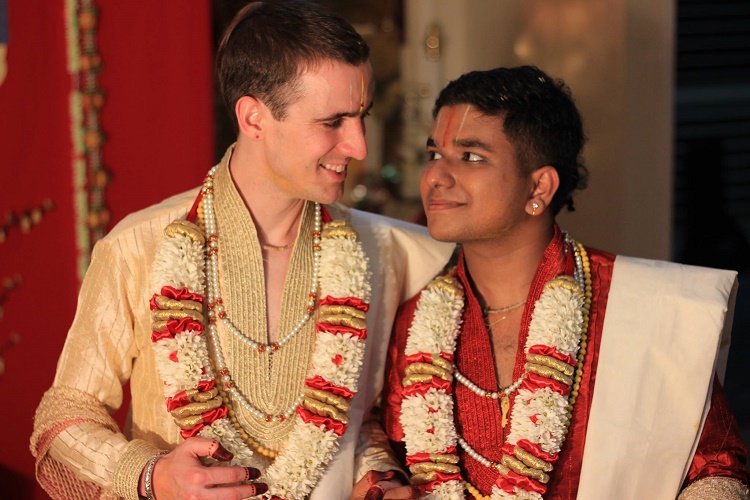
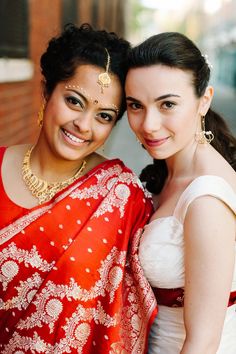
Comedian: Being Gay and Indian in America
India Declares: Freedom of Sexual Orientation is
Fundamental Right
Video Discussion: what it's Like to be Gay in India
A Little Late With Lilly Singh
Indian Love Story: Sweety and Kuhu
Video Talk: Sikh Man Comes Out to Himself and Family
What Does it Mean to Be a Queer Hindu?
Indian Comedian Lilly Singh Comes Out as Bisexual
Video: Coming Out to Immigrant Parents
Thai Lesbian Love Story
Independence Day: I Free Myself
Favorite Female Bartender: Chanel
Chowdhury
Chanel
Chowdhury Shakes Things Up at Pearl Bar in Houston
Chanel Chowdhury never expected
bartending to become her passion. Years
ago, she was just a server at a sports
bar, not yet knowing that bartending
would soon change her life. “Eventually,
I was trained to bartend,” she says. “I
immediately fell in love with it. It
made me more social, and I loved getting
to discover all kinds of fun cocktails I
could make. I’m very passionate about
helping people find their new go-to
drink.”
But it wasn’t just the drinks. It was
the people, the connections, the way she
came out of her shell one shot at a
time. That journey led her to Pearl Bar,
one of the last remaining lesbian bars
in Texas. “Even before I worked here,
Pearl was a safe space for me,” she
says.
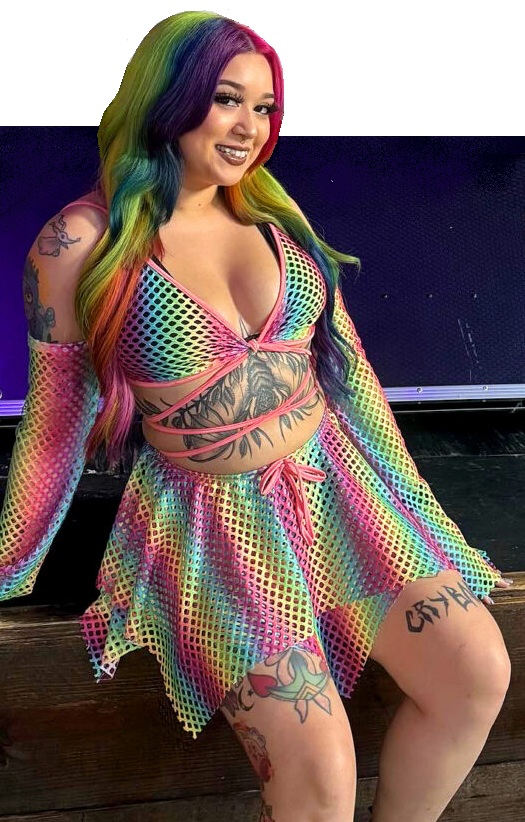
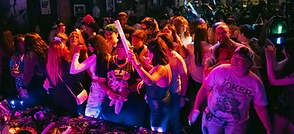
The Pearl Bar in Houston
Chanel Chowdhury Shakes Things Up at
Pearl Bar: Favorite Female Bartender
Chowdhury was recently crowned Favorite
Female Bartender in OutSmart’s 2025
Gayest & Greatest Readers’ Choice
Awards. She explains that the award
couldn’t have happened without the
support of her team at Pearl. “I’m so
grateful for this award,” she says. “And
shoutout to the best boss, Julie Mabry,
for creating such a welcoming space.
This is honestly such an amazing
validation. It really healed that inner
queer child inside of me. Young Chanel
would be so proud. I am so
unapologetically queer, and I’m so
grateful for this award!”
At Pearl, Chowdhury has become part of
the bar’s heartbeat, helping to keep its
legacy alive while pouring shots and
shaking drinks. “We deserve more lesbian
bars in the US,” she says, “but I’m so
grateful Pearl is surviving and
thriving.”
Chowdhury’s passion for community is
just as strong as her love for mixology.
On Wednesday nights, the bar comes alive
with drag-king shows, a personal
favorite of hers. The themes change
weekly—from nostalgic ’90s nights to
spooky horror themes—and Chowdhury
curates themed drink menus to match.
“It’s such a blast,” she says. “We put
on a hell of a show every Wednesday!”
Then on Thursdays? A whole different
kind of magic. “Julie, our amazing
owner, makes a hell of a steak for Steak
Night,” Chowdhury says. “And then
there’s free drag bingo and, yes, dildo
races. It’s wild. You’ve gotta come see
it for yourself!”
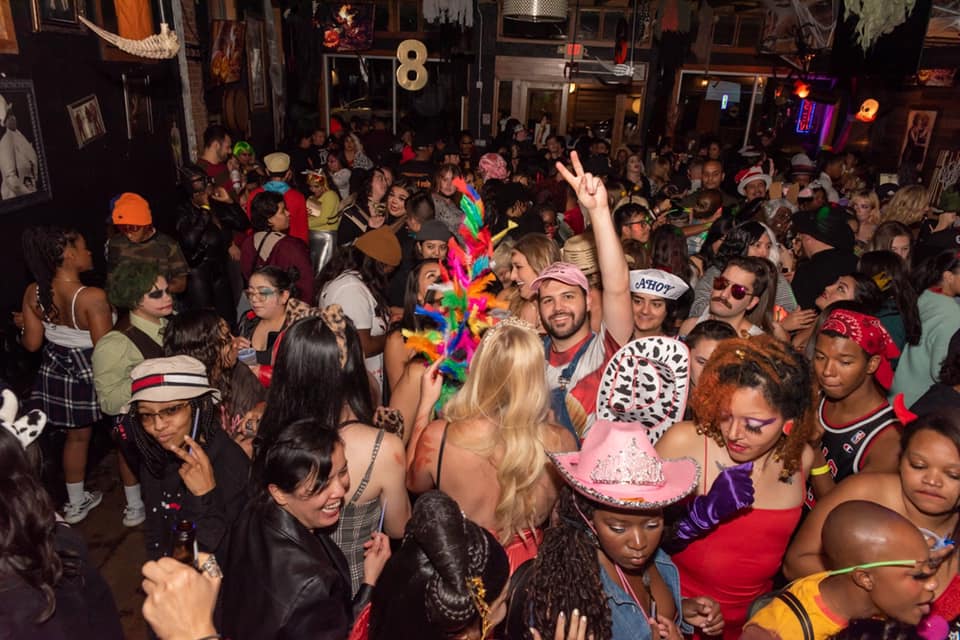
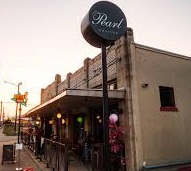
But it’s not all laughs, games, and
cocktails. For Chowdhury, bartending is
also about connection. One night, she
met a fellow “desi” (South Asian)
lesbian at the bar. “We started chatting
about life and what it was like growing
up lesbian and Muslim,” she says. “I
told her it had been years since I’d had
a homemade Bengali or Indian meal.” A
few weeks later, that same woman brought
her a plate of home-cooked food. “It was
such a sweet moment, and it was
delicious,” Chowdhury says.
Outside the bar, Chowdhury is just as
vibrant. Her house regularly hosts
intense board game nights with friends
who take competition as seriously as she
does. “We can go for hours,” she says.
She also loves reading, true-crime
shows, anything a little spooky, and
camping. “I keep a tent in my trunk at
all times, just in case!” she says.
Clearly the kind of person who is always
ready for adventure.
Chowdhury’s love for her community
doesn’t stop at the bar. She actively
supports organizations like The Trevor
Project, Tony’s Place, The Montrose
Center, and DeQH (Desi Queer Helpline).
As for the future? Chowdhury says she
will continue being unapologetically
herself and helping keep the spirit of
Pearl alive. “Long live Pearl Bar,” she
concludes. “And here’s to hoping for
more lesbian bars to open across Texas
and the US. If you haven’t been to Pearl
yet, come by. We’ll make you feel right
at home.”
[Source: Connor Behrens, OutSmart
Magazine, Oct 2025]
These Two Grooms Got Married In
A Strikingly Beautiful Hindu
Wedding
India's First gay Prince and His Husband
Prove Love Can Break Barriers and Change Minds
Vice: Secret Lives of India's LGBTQ Youth
Nik Dodani: Gay Indian Stand-Up Comic
LGBTQ Hindu Love Gods
Guardian: Indian Americans Balance Family with LGBTQ
Identity
Delhi's First LGBTQ Flash Mob
“Your Love” Film Puts Queer South Asian
Elders Front and Center in a Beautiful Way
Video: LGBTQ Rights in India
Hinduism and LGBTQ Topics
Sikh Man Discusses Homosexuality with His Mum
Indian Love Story: Datta and Sri
Video Story: I Can Be Gay and Muslim
Umang and Samara
LGBTQ Pride March in Mumbai
Best South Asian LGBTQ Movies on
Streaming
LGBTQ and Contemporary Hindu Society
Sexuality is rarely discussed openly in contemporary
Hindu society, especially in modern India where
homosexuality was illegal until a brief period beginning
in 2009, due to colonial British laws. On July 2, 2009
The Delhi High Court in a historic judgement
decriminalized homosexuality in India; where the court
noted that the existing laws violated fundamental rights
to personal liberty (Article 21 of the Indian
Constitution) and equality (Article 14) and prohibition
of discrimination (Article 15). Even before this
judgment, in India homosexuals were very rarely
prosecuted despite the existence of such laws in the
penal code. However, the Supreme Court of India
re-affirmed the penal code provision and overturned the
Delhi High Court decision, effectively re-instating the
legal ban on homosexuality.
Even though Hinduism is never known to exclusively ban
homosexuality, certain Hindu nationalist factions are
opposed to legalizing homosexuality while certain others
choose to remain silent. However, in the last twenty
years homosexuality has become increasingly visible in
the print and audio-visual media, with many out LGBTQ
people, an active LGBTQ movement, and a large Indian
LGBTQ presence on the Internet. From the 1990s onward,
modern gay and lesbian Hindu organizations have surfaced
in India's major cities and in 2004, plausible calls
were made for the first time to repeal India's outdated
and nontraditional laws against homosexuality.
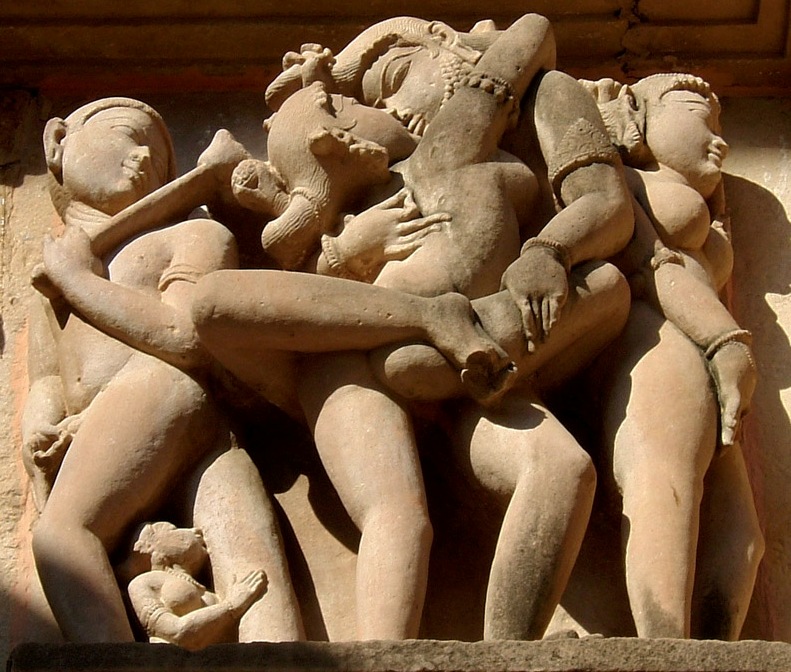

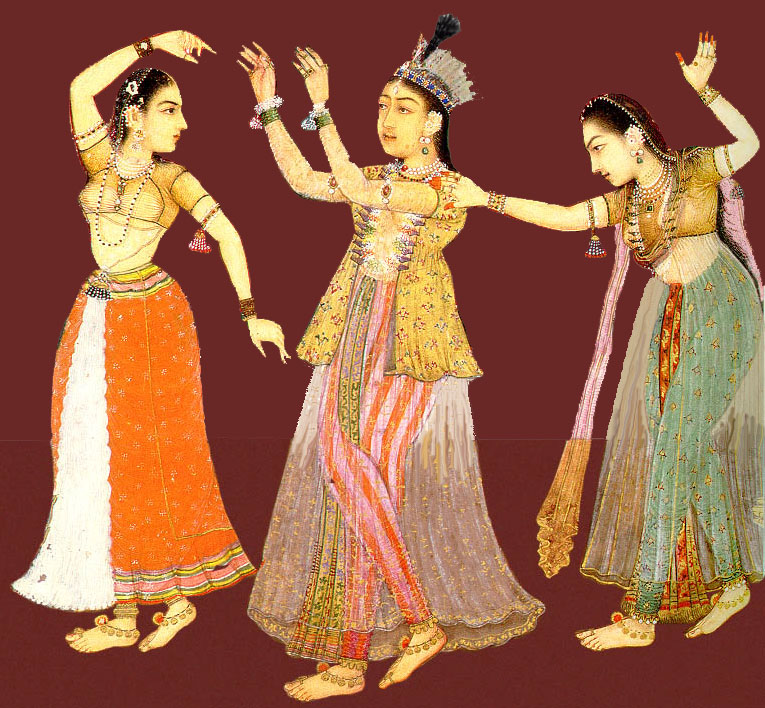
Queer Themes in Hindu
Mythology
Newsweek: Perils of Being LGBTQ in India
Humnava Mere: Manyata and Natasha
LGBTQ
Nation: News From India
Indian Transgender People and the Caste
System
Video Explanation: Homosexuality in Ancient India
Quora Blog: What It's Like to Be Gay and Indian
Homosexuality
in India
Homosexuality is mostly a taboo subject in Indian civil
society and for the government. There are no official
demographics for the LGBTQ population in India, but the
government of India submitted figures to the Supreme
Court in 2012, according to which, there were about 2.5
million gay people recorded in India. These figures are
only based on those individuals who have self declared
to the Ministry of Health. There may be much higher
statistics for individuals who have concealed their
identity, since a number of homosexual Indians are
living in the closet due to fear of discrimination.
Homophobia is prevalent in India. Public discussion of
homosexuality in India has been inhibited by the fact
that sexuality in any form is rarely discussed openly.
In recent years, however, attitudes towards
homosexuality have shifted slightly. In particular,
there have been more depictions and discussions of
homosexuality in the Indian news media and in Bollywood
films. Several organizations, including the Naz
Foundation Trust, the National AIDS Control
Organization, Law Commission of India, Union Health
Ministry, National Human Rights Commission of India, and
the Planning Commission of India have expressed support
for decriminalizing homosexuality in India, and pushed
for tolerance and social equality for lesbian, gay,
bisexual, transgender, and queer people. India is among
countries with a social element of a third gender. But
mental, physical, emotional and economic violence
against LGBTQ community in India prevails. Lacking
support from family, society or police, many gay rape
victims don't report the crimes.
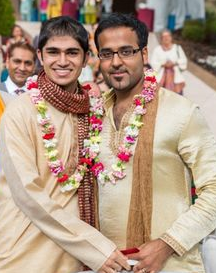
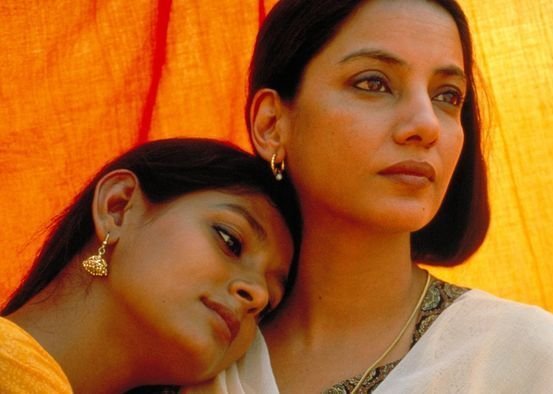

India's First gay Prince and His Husband
Prove Love Can Break Barriers and Change Minds
Vice: Secret Lives of India's LGBTQ Youth
“Your Love” Film Puts Queer South Asian
Elders Front and Center in a Beautiful Way
Hijra: India's Transgender Community
Guardian: Indian Americans Balance Family with LGBTQ
Identity
Comedian: Being Gay and Indian in America
KHUSHDC: South Asian
Queer and Trans Society
India Declares: Freedom of Sexual Orientation is
Fundamental Right
Sufi and Angali
Video: Coming Out to Immigrant Parents
Kunal Nayyar Talks About
India's Decision to Decriminalize Homosexuality
Religion has played a role in shaping Indian customs and
traditions. While injunctions on homosexuality's
morality are not explicitly mentioned in the religious
texts central to Hinduism, the largest religion in
India, Hinduism has taken various positions, ranging
from homosexual characters and themes in its texts to
being neutral or antagonistic towards it.
In 2005, Prince Manvendra Singh Gohil, who hails from
Rajpipla in the Gujarat, publicly came out as gay. He
was quickly anointed by the Indian and the world media
as the first openly gay royal. He was disinherited as an
immediate reaction by the royal family, though they
eventually reconciled. He appeared on The Oprah Winfrey
Show in October 2007, and on BBC Three's Undercover
Princes.
In 2008, Zoltan Parag, a competitor at the Mr. Gay
International contest said that he was apprehensive
about returning to India. He said, "Indian media has
exposed me so much that now when I call my friends back
home, their parents do not let them talk to me".
In June 2008, five Indian cities (Delhi, Bangalore,
Kolkata, Indore, Pondicherry) celebrated gay pride
parades. About 2,000 people turned out in these
nationwide parades. Mumbai held its pride march in
August 2008, with Bollywood actress Celina Jaitley
flagging off the festivities. In July 2008, the Delhi
High Court, while hearing the case to decriminalize
homosexuality, opined that there was nothing unusual in
holding a gay rally, something which is common outside
India.

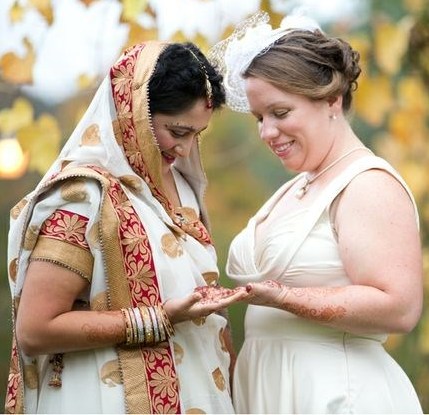
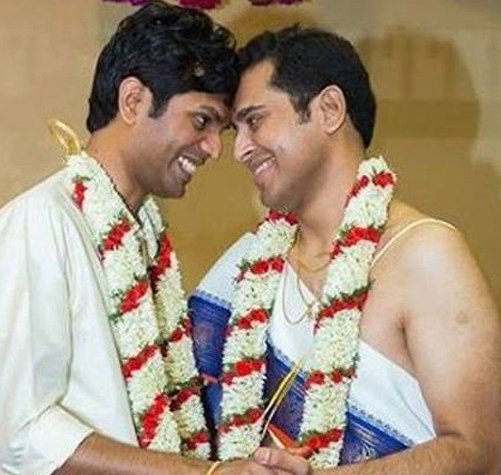
Days after the July 2009 Delhi High Court verdict
legalizing homosexuality, Pink Pages, India's first
online LGBTQ magazine was released. In April 2009,
India's first gay magazine Bombay Dost originally
launched in 1990, was re-launched in Mumbai.
In June 2009, Bhubaneswar, the capital city of Odisha,
saw its first gay pride parade. A day later, Union Law
Minister Veerappa Moily announced that the Union Home
Minister has convened a meeting with the Union Law
Ministers, Union Health Ministers and Home Ministers of
all states to evolve a consensus on decriminalizing
homosexuality in India. In June 2009, Delhi and
Bangalore held their second gay pride parades, and
Chennai, generally considered to be a very conservative
city, held its first.
Mumbai has one of its own pride events, like Kashish
Mumbai Queer Film Festival which was first held in 2010
and again the next year. It was the first queer film
festival in India and is held in a mainstream multiplex
theater which screens LGBTQ films from all over the
world.
In May 2011, Kolkata Rainbow Pride Festival was formed.
The 11th Kolkata Rainbow Pride Walk, held in July 2012,
was attended by more than 1500 people. Kolkata
hosted South Asia's first pride walk in 1999.
Chandigarh held its first LGBTQ pride parade in March
2013 and it has been held annually ever since.
The first LGBTQ pride parade in Gujarat state was held
at Surat in October 2013.
Queer Themes in Hindu
Mythology
Video: Homosexuality in Ancient Indian
What Does it Mean to Be a Queer Hindu?
Advocate: LGBTQ Hindu Gods
Hinduism and LGBTQ Topics
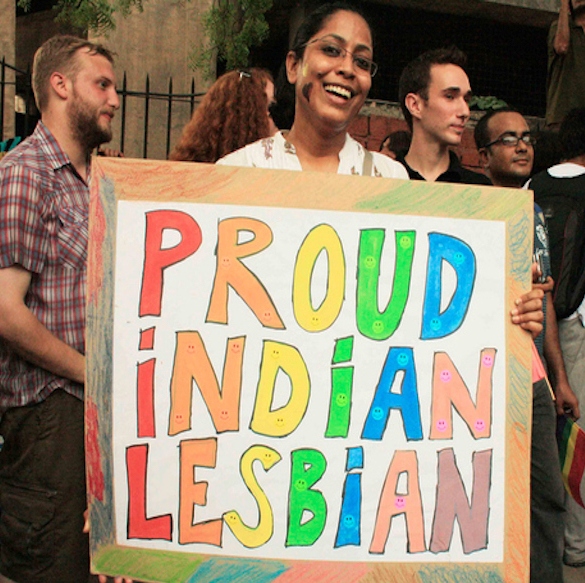
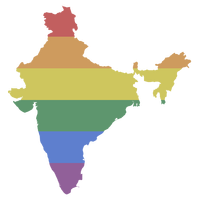
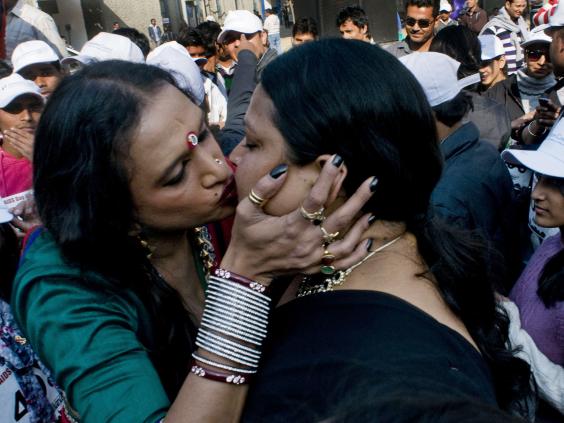
What
Does it Mean to Be a Queer Hindu?
It means that despite you knowing from a very young age
that you were ‘different’ (whether you liked the same
sex, or both sexes, or you didn’t identify with the sex
you were assigned at birth) none of that matters.
Everyone will tell you that you’re just “confused” and
you need to be shown that being a cisgender, straight
person is the only way to live in our society.
It means living in fear. If your parents or grandparents
find out that you’re queer, they could disown you, or
try to change you. In India, you can be arrested for
having same-sex sex, or be pressured into a mixed
orientation marriage to ‘cure’ you. In the US, your
employer can still legally fire you and your landlord
can legally evict you, just because of your LGBTQ
identity, in over half the states in the country. In
addition, there will be constantly be debates over
whether or not business owners should be allowed to
refuse people like you service because of their
religious beliefs, because they claim that their
religion condemns your “lifestyle”. Politicians will
tell you that you should be grateful that you’re even
allowed to exist peacefully in this country, because in
several countries around the world, homosexuality is a
crime punishable by death, or by physical punishments
which will likely leave you close to death.
When you go to the temple to worship and associate with
other devotees, you will constantly be checking
yourself. For example, when you try to befriend another
devotee, or really any person you meet, you’re aware
there is always a 50% chance that when this person finds
out you identify as LGBTQ, they will feel the need to
call you sinful and disgusting (or even worse), even if
they know nothing else about you. You’re queer. That is
enough to condemn you. You’re used to this, because this
has been going on your whole life.
You will be constantly asked, “But how do you regulate
your sex life?” as if that is the most pressing issue in
your life. People will never be interested in protecting
your civil rights, because they need to know whether or
not you have gay sex. You will never be looked upon as a
person. You will always be reduced to the sexual acts
you have in the privacy of your own home. You will
always be seen as sexual, never as spiritual.
You will be referred to as “garbage” by people who claim
to love the same God you do, the same God who has said
in the Bhagavad Gita that He hates no one, because He
dwells in every being.
[Source: Jnana-Dipena: A Queer Sri Vaishnava Seeks the
Lamp of Knowledge]
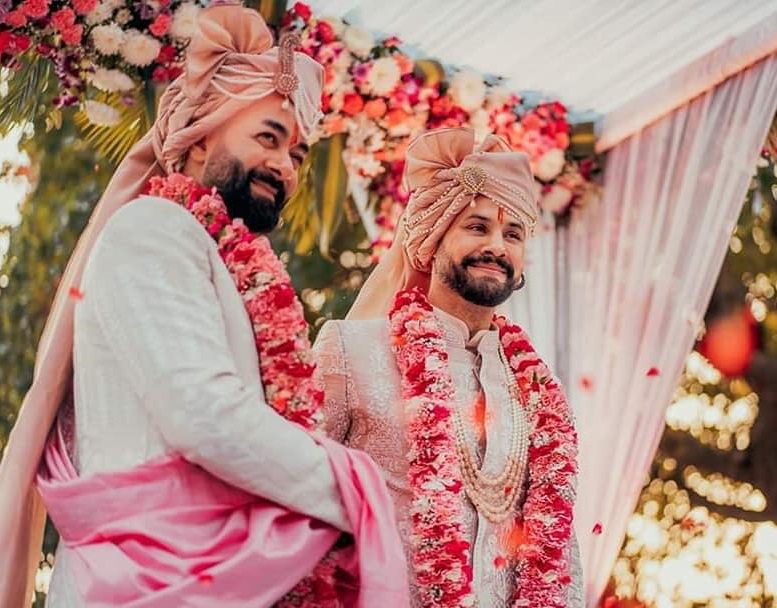
Vice: Secret Lives of India's LGBTQ Youth
New Delhi LGBTQ Pride
Video Lesson: Brief History of All
Things LGBTQ in India
Nik Dodani: Gay Indian Stand-Up Comic
Matt and Harshal: Wedding Ceremony
Hinduism and LGBTQ Topics
Video Story: I Can Be Gay and Muslim
Sikh Man Discusses Homosexuality with His Mum
Indian Transgender People and the Caste
System
Comedian: Being Gay and Indian in America
Love Story: Vaibhav and Parag
Indian Comedian Lilly Singh Comes Out as Bisexual
Actor Nik Dodani: Being
Gay and Indian
Having Pride in Both My Sikh and Gay Identity
Video Discussion: what it's Like to be Gay in India
Newsweek: Perils of Being LGBTQ in India
KHUSHDC: South Asian
Queer and Trans Society
Quora Blog: What It's Like to Be Gay and Indian
HOME
QUEER CAFE
│ LGBTQ Information Network │ Established 2017
|